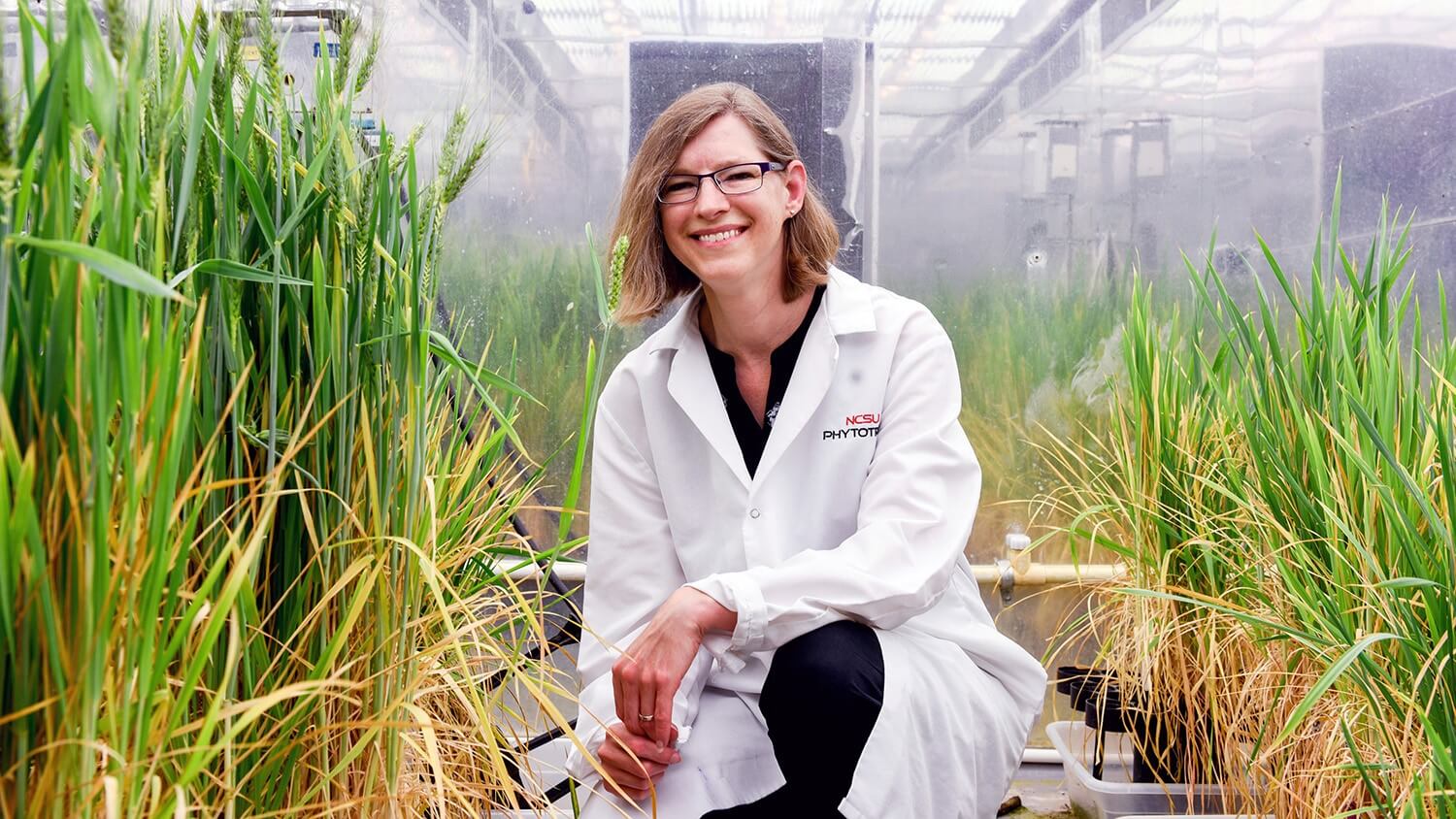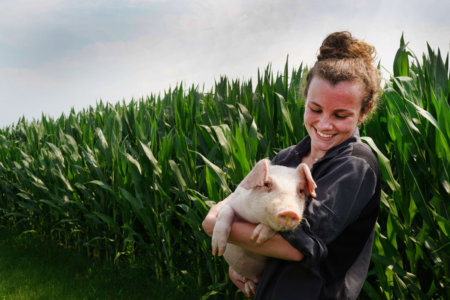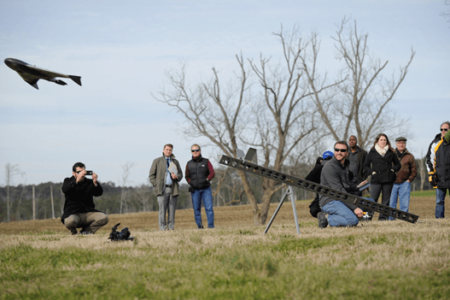Plants and microbes are the foundation of life. Advancing discoveries in plant research is essential to civilization, and that’s exactly what NC State University’s researchers and graduate students do.
An international training ground for problem-solvers
NC State University is globally known for their broad research portfolio of over 130 million US dollars in annual expenditures, supporting 600 active projects. Much of that research involves graduate students, offering opportunities for hands-on learning and research.
In addition to NC State’s world-class graduate programs, the university’s N.C. Plant Sciences Initiative (N.C. PSI) is quickly becoming the global hub for plant science education, research, innovation, and solution development and delivery.
This is done with support from over 44 agricultural organizations and assistance from long-standing partners. The university is home to 18 research stations with collaborative research conducted in partnership with the US Department of Agriculture – Agricultural Research Service and the NC Department of Agriculture and Consumer Services scientists.
CCRP: Where microbiomes and agriculture collide
As a result of international interest in the N.C. PSI, interdisciplinary research teams at NC State and three Danish universities are examining the roles of plant-associated microbes and their interactions with plants through the Collaborative Crop Resilience Program (CCRP). The goal is to help make crops more resilient against environmental stresses while reducing the need for chemical treatments and irrigation.
CCRP is funded by the Novo Nordisk Foundation, the parent organization of biological solutions leader Novozymes. CCRP is at the forefront of discovery in plant sciences and in translating these discoveries into solutions for farmers, life-sciences companies and consumers.
Leading CCRP is NC State’s Amy Grunden, William Neal Reynolds Distinguished Professor of Plant and Microbial Biology, who developed the program with the University of Copenhagen, Aarhus University and the Technical University of Denmark.
“I’ve been very proud of being able to bring together interdisciplinary teams to work towards making a difference in some of the grand challenges we’re facing,” Grunden said. One of these interdisciplinary teams is working on an international Novo Nordisk Foundation-funded research program to leverage microbes to improve wheat resilience. “I really enjoy being able to engage faculty members to develop strategies to improve food security in a sustainable manner.”
The project takes a holistic view of plants and their interactions with microbes in the soil, roots and foliage. The plant’s microbiome — its microbes and the ways they interact with the plant — plays a critical role in plant health and wellbeing, similar to the way the human gut microbiome influences human health.
“The goal is to improve plant productivity in the face of climate change and emerging pathogens and pests by leveraging microbes to help plants avoid stresses while acquiring nutrients to reduce fertilizer, pesticide and irrigation,” Grunden said.
Innovation to feed people drives graduate student research
Jabeen Ahmad, a PhD candidate in the Plant Biology Graduate Program, joined the CCRP research team to focus on plant-microbe interactions and explore the wheat root microbiome. But her path to this critical research area was far from a straight line.
Prior to joining NC State, Ahmad was a trial lawyer and public defender with a strong desire to help people. She soon started looking for different ways to use her legal background. Ahmad came to NC State, where she completed a master’s degree in physiology and is now a third-year doctoral student in plant biology.

Jabeen Ahmad, Source: NC State University
“Interdisciplinary studies are crucial now. It is absolutely essential to have a skill set that can cross into all of these different spheres,” she said .
Her new experiences provide a pathway for doing what she really loves, which includes “constantly being challenged, solving problems, learning new things, and using the legal skills I have to help people innovate and protect their inventions.” Her goal is to help people turn their ideas into reality.
To feed a growing population, innovation will be vital to shaping farming for the future, she said . The key question she’s working on with her advisor Amy Grunden includes developing technology that can change farming processes or the crops and plants people use to feed the population.
“If we can find more ways to naturally help plants survive and thrive in adverse conditions, then that really opens up an entire world of research and possibilities for crop production, for food sustainability and for environmental rehabilitation,” Ahmad explained .
Some farming innovations, like genetically modified crops, are hard to understand, and thus not always well received. Ahmad says that is where an interdisciplinary background like hers can be helpful.
“It is really important for us in the research world, in the science world, to be able to communicate what it is that we’re doing, why it’s important and clear up all of the misunderstandings that exist out there,” she said .
After her doctoral studies, Ahmad hopes to be part of an agricultural technology startup. She wants to do research, offer guidance and bring together interested parties to help bring agricultural solutions to market and enhance the sustainability of the agricultural sector.
Two programs, unlimited opportunities
The NC State Department of Plant and Microbial Biology offers two graduate programs: plant biology and microbiology. Program highlights include:
● Rigorous courses taught by faculty experts
● Students can conduct cutting-edge research to solve real-world challenges
● A chance to work on interdisciplinary research projects with faculty and researchers across NC State, including Entomology and Plant Pathology, Horticultural Science, Crop and Soil Sciences, Molecular and Structural Biochemistry, Applied Ecology and the College of Engineering
● Graduates are are prepared for careers in science, government and industry
If you’re interested in exploring NC State University’s plant biology and microbiology programmes, click here.













